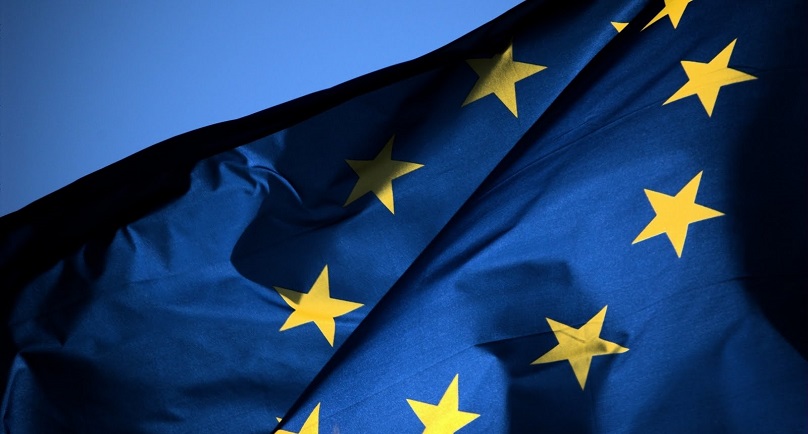Talks on a climate plan for 2050 should wrap up by the end of this year in view of final adoption in early 2020, according to the draft conclusions of an EU summit taking place this week in Brussels.
EU leaders are set to grant the incoming Finnish EU Presidency a mandate during this week’s summit to ramp up talks on an ambitious plan to make the bloc carbon neutral by 2050.
In draft conclusions obtained by EURACTIV, the EU’s 28 national governments and the European Commission are invited “to advance work on the conditions, the incentives and the enabling framework to be put in place to support the fair transition to a climate-neutral EU”.
“The European Council will finalise its guidance before the end of the year with a view to the adoption of the EU’s long-term strategy in early 2020,” the conclusions add.
The “early 2020” date is not a firm deadline for EU member states to reach an agreement, one EU official told EURACTIV. Instead, it is meant to focus minds ahead of the final summit of the year in December.
Under the terms of the Paris Agreement, the EU has to submit a long-term plan “by 2020”, which technically means the bloc has until December 2020 to reach an agreement.
But the EU’s climate leader aspirations would likely take a hit if a deal takes that long to reach on a strategy the European Commission first unveiled in November 2018.
Japan is among the major world powers coming to a UN summit in September with new commitments. On Tuesday, its government agreed its own plan to completely decarbonize by mid-century the third largest economy in the world.
Next week is the EU’s last opportunity to go to the UN meeting with a finalized plan in tow, but a packed agenda mostly geared around doling out top institutional jobs like the commission presidency means it is highly unlikely.
For campaigners, this looks like foot-dragging. Next week’s summit is the “last chance for governments to show they’re prepared to ramp up ambition,” said Sebastian Mang from Greenpeace. “Waiting until 2020 would be an irresponsible denial of the science,” he told EURACTIV.
UN Secretary-General Antonio Guterres urged world leaders to come to September’s meeting with “concrete, realistic plans” to boost their emissions-reduction efforts.
Governments were asked to either present their long-term plans in full or to show that they will be ready for 2020. The way things stand, the EU will only be able to demonstrate the latter.
This week’s conclusions will give the bloc some ammunition, although it could fail to convince critics who say it is not living up to its tag of climate champion.
Another point Brussels could emphasize is the question of financing the energy transition. The draft conclusions say that the EU is still committed to “a timely, well-managed and successful replenishment process for the Green Climate Fund” aimed at supporting developing countries.
Delaying agreement on the EU’s climate plan until early 2020 will also align the talks with ongoing negotiations on the EU’s long-term budget, the so-called multi-annual financial framework (MFF) for 2021-2027.
Political wrangling around the budget will continue until December, although EU sources say the commission is pushing for an extra dedicated summit in September to move things along.
An agreement on climate change spending, which EU heads want to be at least 25% of the budget, could also be a strong statement in lieu of a full-blown strategy, although one EU source told EURACTIV that “the idea is not to buy climate neutrality”.
The list of EU countries now in favour of signing up to the 2050 plan numbers around 12, even though they differ in how outward they are in their support.
In May, Belgium, Denmark, France, Luxembourg, the Netherlands, Portugal, and Spain all signed a joint appeal explicitly backing the net-zero target by 2050.
Finland’s new government just announced it will go climate neutral by 2035, while Theresa May’s last major act as UK prime minister was to commit her country to the same goal by 2050. Latvia and Slovenia are also among those on board.
Italy’s government was previously unwilling to support a plan that some diplomats consider “a Macron strategy”, although EURACTIV understands that Rome will now back an agreement.
Central and Eastern European countries like Bulgaria, Croatia, the Czech Republic and Poland are the most sceptical, despite data showing that they are the most susceptible to damages caused by climate change.
Germany remains potentially the biggest obstacle though but the council’s new timeframe now matches the Bundesrepublik’s, given that Angela Merkel’s government is due to update Germany’s climate protection strategy by the end of the year too.
The chancellor said in May that it “is not about whether but how we can achieve this goal”. The European Council appears to have made its peace with that slow and steady approach in its “before the end of the year” conclusions.
However, there is not enough support yet to include a deadline for climate neutrality in the EU’s plan for the next five years, known as the strategic agenda.
The document is currently being tweaked by member state officials and ambassadors but the 2050 date is very unlikely to make it into the final draft. Heads of government will adopt it at this week’s summit.
Source: PACNEWS


